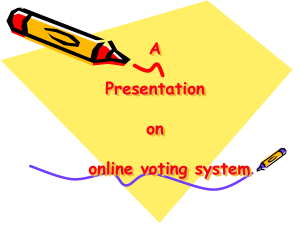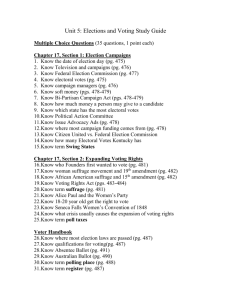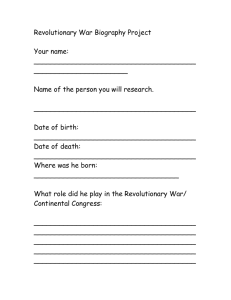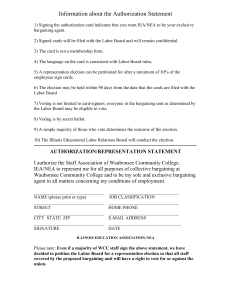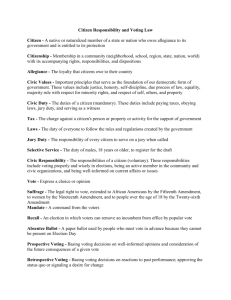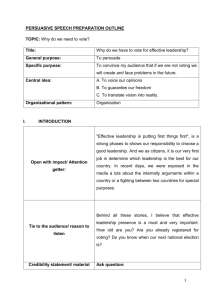Party One: Constitution Party
advertisement
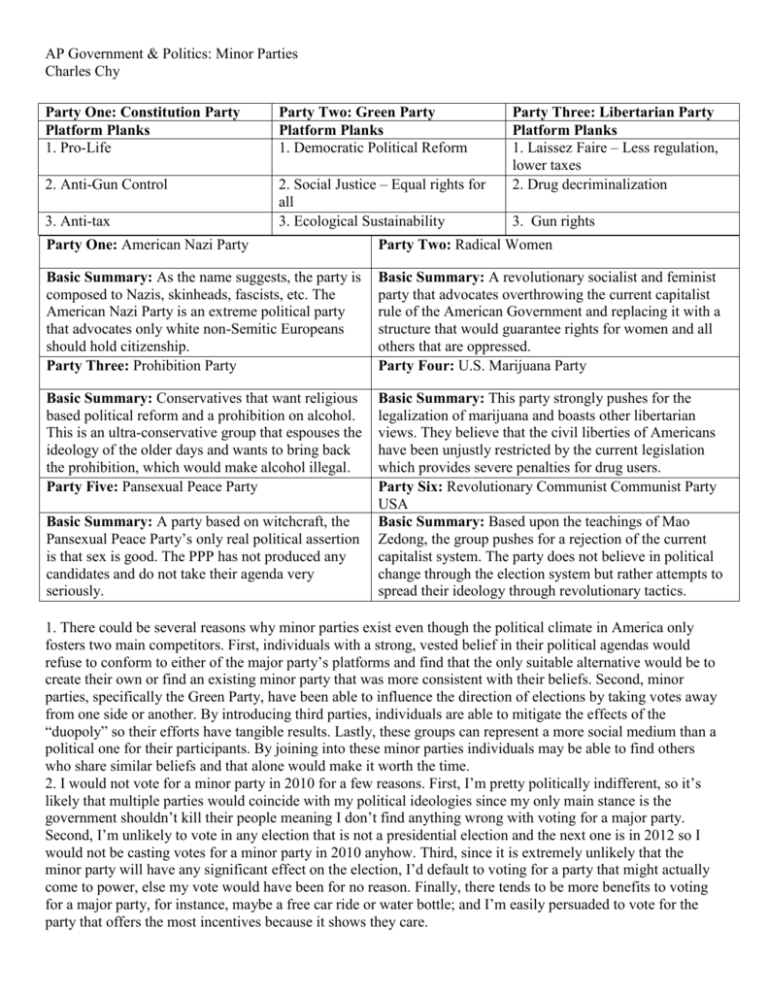
AP Government & Politics: Minor Parties Charles Chy Party One: Constitution Party Platform Planks 1. Pro-Life Party Two: Green Party Platform Planks 1. Democratic Political Reform 2. Anti-Gun Control 2. Social Justice – Equal rights for all 3. Ecological Sustainability 3. Anti-tax Party Three: Libertarian Party Platform Planks 1. Laissez Faire – Less regulation, lower taxes 2. Drug decriminalization 3. Gun rights Party One: American Nazi Party Party Two: Radical Women Basic Summary: As the name suggests, the party is composed to Nazis, skinheads, fascists, etc. The American Nazi Party is an extreme political party that advocates only white non-Semitic Europeans should hold citizenship. Party Three: Prohibition Party Basic Summary: A revolutionary socialist and feminist party that advocates overthrowing the current capitalist rule of the American Government and replacing it with a structure that would guarantee rights for women and all others that are oppressed. Party Four: U.S. Marijuana Party Basic Summary: Conservatives that want religious based political reform and a prohibition on alcohol. This is an ultra-conservative group that espouses the ideology of the older days and wants to bring back the prohibition, which would make alcohol illegal. Party Five: Pansexual Peace Party Basic Summary: This party strongly pushes for the legalization of marijuana and boasts other libertarian views. They believe that the civil liberties of Americans have been unjustly restricted by the current legislation which provides severe penalties for drug users. Party Six: Revolutionary Communist Communist Party USA Basic Summary: Based upon the teachings of Mao Zedong, the group pushes for a rejection of the current capitalist system. The party does not believe in political change through the election system but rather attempts to spread their ideology through revolutionary tactics. Basic Summary: A party based on witchcraft, the Pansexual Peace Party’s only real political assertion is that sex is good. The PPP has not produced any candidates and do not take their agenda very seriously. 1. There could be several reasons why minor parties exist even though the political climate in America only fosters two main competitors. First, individuals with a strong, vested belief in their political agendas would refuse to conform to either of the major party’s platforms and find that the only suitable alternative would be to create their own or find an existing minor party that was more consistent with their beliefs. Second, minor parties, specifically the Green Party, have been able to influence the direction of elections by taking votes away from one side or another. By introducing third parties, individuals are able to mitigate the effects of the “duopoly” so their efforts have tangible results. Lastly, these groups can represent a more social medium than a political one for their participants. By joining into these minor parties individuals may be able to find others who share similar beliefs and that alone would make it worth the time. 2. I would not vote for a minor party in 2010 for a few reasons. First, I’m pretty politically indifferent, so it’s likely that multiple parties would coincide with my political ideologies since my only main stance is the government shouldn’t kill their people meaning I don’t find anything wrong with voting for a major party. Second, I’m unlikely to vote in any election that is not a presidential election and the next one is in 2012 so I would not be casting votes for a minor party in 2010 anyhow. Third, since it is extremely unlikely that the minor party will have any significant effect on the election, I’d default to voting for a party that might actually come to power, else my vote would have been for no reason. Finally, there tends to be more benefits to voting for a major party, for instance, maybe a free car ride or water bottle; and I’m easily persuaded to vote for the party that offers the most incentives because it shows they care.





